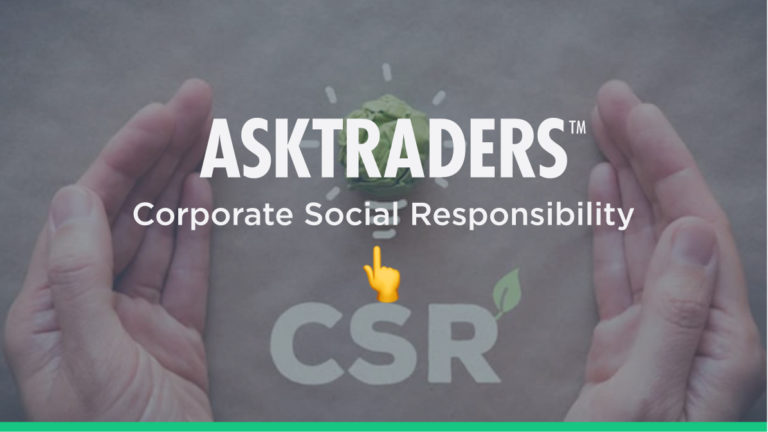
In today’s society, many customers, employees and shareholders care deeply about the impact made by the companies they patronise, work for, or invest in. Ethical consumers, investors and workers want to support businesses that prioritise corporate social responsibility (CSR).
CSR refers to business practices that support an ethical, responsible, sustainable approach to doing business, and can incorporate a wide range of behaviours, policies and practices. Companies committed to CSR develop a business model where the company is held accountable to the public (including various stakeholders) and remains conscious of the impact that their actions are having on society. This impact may be environmental, social, and economic. For many organisations, maintaining CSR also incorporates maintaining a transparent, integrity-based, corruption-free internal structure.
What issues are relevant in corporate social responsibility?
There are standards in place to help companies assess what constitutes socially responsible business activity. However, there will always be some subjectivity, and some disagreement among customers and other stakeholders when it comes to evaluating companies based on CSR.
Many ethical consumers and investors will choose to avoid firms that profit from tobacco, alcohol, pornography, gambling, weapons, fossil fuels, or nuclear power. They may consider that a company is practising good CSR if they are dedicated to sustainable resource management, producing or using green energy, creating environmentally sustainable products, and importing products under Fair Trade standards. The public may choose to look at how a company sources its materials, how it treats its workers, whether it recycles and uses recycled materials, and what its overall carbon footprint is. Others may look at human rights records, equality of opportunity within the company, fair wages and working conditions.
In short, CSR is an extremely broad concept, and the issues that matter to one consumer or investor may not matter to others. In deciding, as a customer, investor or employee which companies to support, you first have to decide which issues matter most to you. This is particularly important as there are plenty of companies meeting some criteria for social responsibility, and not others. Many of us instinctively know which issues matter to us and which kind of practices we want to both support and avoid supporting. So it is simply a case of choosing to support the companies whose values most align with our own.
What is ESG in corporate social responsibility?
You will often hear the term ESG in connection with corporate social responsibility or ethical investing. ESG refers to environment, social and governance — with ESG investments or ESG funds tending to refer to investments in entities that adhere to environmental, social and governance best practices. ESG screening is another term you may hear, which we discuss in detail in our piece on sustainable ETFs. This is a way for investors to ensure they only invest in socially and environmentally-responsible companies with strong, ethical, corruption-free governance in place.
Who sets the standard for corporate social responsibility?
In 2010, the International Organisation for Standardisation (ISO) released a set of standards aimed at helping companies work toward being socially responsible. Known as ISO 26000, this set of standards are entirely voluntary, and not in any way required or regulated by any external body. They have, however, become a useful way for organisations who care about social responsibility to self-regulate, providing some solid guidance, and ways for companies to translate principles into actual behaviours and actions.
The standard was developed with input from various stakeholders, including representatives from industry, government, NGOs, consumer groups and labour organisations across the globe. It can be applied to organisations of all types and sizes, regardless of their location and business model.

What do companies do to meet these standards?
As already mentioned, the standards are voluntary and no company is obliged to meet any of them. For those who want to ensure their company is a socially responsible one, however, there are over 400 recommendations that any company can use to improve its contribution to society. These include steps that can be taken to ensure sustainable environmental, economic and social development.
There are seven key principles of ISO 26000 and many actions companies can take within each one, in order to practice CSR. The principles are:
Accountability— This implies that companies are accountable for the decisions they take and the effect they may have, including taking preventative actions to ensure they cause no harm, and repairing any accidental harm caused by their actions.
Transparency— This includes organisations disclosing all activities, decisions and policies they are responsible for, to their customers, stakeholders, and the general public.
Ethical behaviour— This covers a wide range of issues, including the welfare of people, animals and the environment.
Respect for stakeholder interests— Stakeholders include individuals or groups who are affected by the actions of organisations or have the ability to impact them.
Respect for the rule of law— This is included in the otherwise voluntary standard for compliance reasons. It should, of course, go without saying that organisations should comply with all local, national and international laws that apply to them.
Respect for international norms of behaviour— This includes the expectation, that, even if not defined by law, an organisation should strive to respect the norms of behaviour for any location in which they are operating.
Respect for human rights— Again, this includes situations in which human rights may not be protected by law, or where the law is not clear on what constitutes a violation of human rights. In such cases, any organisation should recognise and respect the importance of universal human rights.
The actual recommendations in ISO 26000 are far-reaching, and cover specific actions and behaviours that companies and other organisations can follow, in a wide range of areas. These areas include (but are certainly not limited to):
- The prevention of pollution
- Sustainable resource use
- Health and safety of employees
- Discrimination and vulnerable groups
- Anti-corruption
- Protection of the environment, biodiversity and restoration of natural habitats
How much companies do to meet the recommendations is up to them. Some do a lot and others nothing at all. However, those doing a lot may benefit in numerous ways, as we discuss below.
Why does corporate social responsibility matter?
CSR matters for a variety of reasons. It is morally important to protect the environment, human rights, and many other vital aspects of society. It has been estimated that just 100 companies are responsible for over 70% of carbon emissions, meaning that protecting the environment really is in the hands of corporations rather than individuals. CSR has already led to a reduction in emissions, a reduction in waste sent to landfills and many other environmental benefits.
However, the benefits of CSR are numerous and varied, including the economic benefits to companies that a reduction in waste and energy usage invariably leads to. The ModusLink CSR Report of 2015 claimed that embracing social responsibility led to a significant reduction in general energy consumption and water usage, so there are direct economic benefits for companies, alongside the environmental and social benefits for local communities and society at large.
Research by Cone Communications carried out in 2017 suggested that almost 90% of consumers surveyed said they would purchase a product because the company selling it supported an issue they care about. Around 75% said they refuse to buy from a company that supports an issue that goes against their own beliefs and values.

Who are the most socially responsible companies?
There are many companies embracing CSRand putting it at the heart of their business decisions. To make life easier for ethical consumers, Ethisphere compiles an annual list of the world’s most ethical companies, across the globe. Their most recent list features 128 companies, from 21 countries and across 50 industries. These are companies picked by an independent advisory panel, comprising leading professors, attorneys, government officials and organisation leaders, with the aim of recognising the organisations on the list for their transparency, integrity and social responsibility.
The list includes organisations from diverse industries — from energy and food companies, through to banks and technology companies. Those who made the list this year include:
- Next Era Energy
- Natura Health and Beauty
- Microsoft
- NWG Water
- EcoLab
- Fifth Third Bank
- Intel
- Pacific Life
Investors and financial professionals looking for ethical investment opportunities may also find the FTSE4 good index series useful. This measures the performance of companies with strong ESG practices and is intended as a tool to be used in the creation of financial products based on sustainable investment, and a benchmark to track the performance of sustainable investment portfolios, as well as for research and reference purposes.
There is considerable evidence regarding the importance of supporting companies that are dedicated to corporate social responsibility. Take a look at the other articles in our guide to ethical trading and find out more about how your investment habits can help support a better world.
PEOPLE WHO READ THIS ALSO VIEWED:
